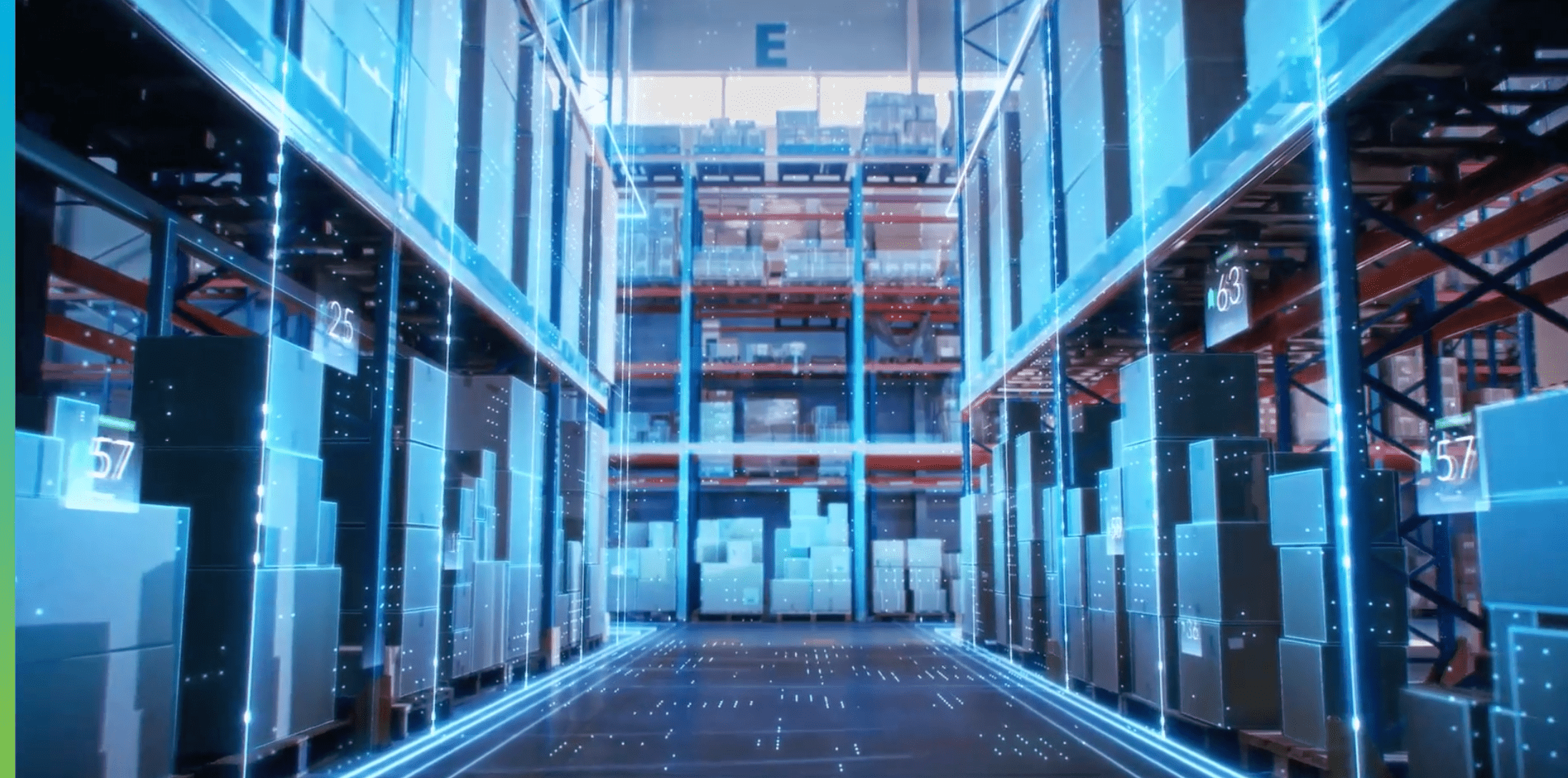
Digital technologies
Digital transformation is blurring the lines between the physical, digital, and biological spheres. From cloud computing, to Artificial Intelligence (AI) and Big Data, technologies of the Fourth Industrial Revolution (4IR) are starting to shape almost every aspect of our lives.
In the oil and gas industry, digital transformation is helping to revolutionize how we supply energy to the world. By deploying a range of 4IR technologies across our business, we aim to help meet the world’s energy needs while enhancing productivity, reducing our carbon intensity, and creating 'next-generation' products and materials.
Digital transformation technologies
Some of the technologies being utilized in our oil and gas operations include:
Artificial Intelligence
Is a wide-ranging term to describe the use of computers, robots, and other machines to autonomously perform tasks that traditionally required human intelligence. One common form of AI in the oil and gas industry is the use of intelligent algorithms to analyze operational data, extract insights, and then automatically implement process improvements to increase efficiency. We have developed an in-house, AI-powered safety product — the i4Safety 2.0 Hazard & Incident Prediction tool — which leverages historical data to predict potential on-site incidents and hazards, allowing us to increase safety and efficiency at facilities where it has been in use.
Supercomputing & Quantum computing
Aramco launched our Dammam-7 supercomputer in January 2021, which is utilized to support the Company’s seismic imaging activities, and was quickly joined by Ghawar-1, our second supercomputer, which was first deployed for use in reservoir simulation, in the first half of 2022.
At the time of launch, Dammam-7, the more powerful of the two, was among the Top 10 most powerful supercomputers in the world, and, after several years supporting the Company’s exploration efforts and operational enhancements, is now entering a new phase of its life as the host of a quantum-computing emulator, via an ambitious new collaboration with leading chip-maker NVIDIA.
Quantum computing promises to transform how advanced computing can tackle the most challenging problems facing a host of industries, including energy. Exploring new reserves requires sophisticated computational techniques, where geoscientists must draw on increasing computing power to process peta-scale seismic data and deliver accurate subsurface images.
Quantum computers themselves are still in the early-stages of becoming a commercial technology, though the pace of adoption and advancement during 2025 has been dramatic — apt for a year named International Year of Quantum Science and Technology by UNESCO. Quantum emulators are an exciting addition to the wider-slate of quantum computing technologies, allowing quantum algorithms and hardware to be modelled, run, and tested on more ‘standard’ hardware, such as that used in the current generation of supercomputers like Dammam-7.
Working closely with NVIDIA, Aramco have ‘accelerated’ Dammam-7 through the addition of NVIDIA graphical processing units (GPUs), and created and demonstrated what is now one of the largest quantum computing emulators in the region, Dammam-7Q (DMM7Q).
This work in 2025 marks the start of this collaboration between Aramco and NVIDIA that aims to explore and utilize the potential of the hybrid Quantum-Classical Supercomputers of tomorrow, which has so far additionally included Aramco’s use of the NVIDIA CUDA-Q platform on Dammam-7Q to detect 3D seismic faults on a full 3D seismic dataset, and has explored the utilization of the Quantum Hadamard Edge Detection algorithm, which has been specifically designed to take advantage of tomorrow’s quantum processors to dramatically enhance the details in subsurface images.
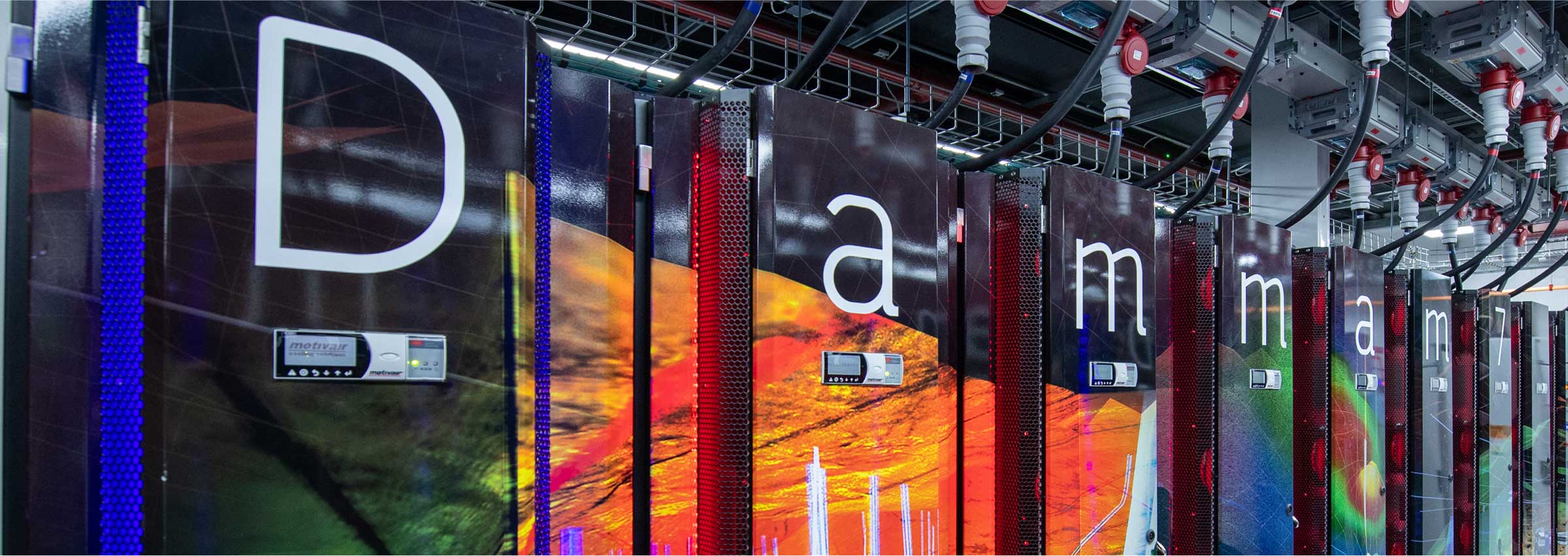
Aramco's Dammam-7 supercomputer.
Blockchain
Is a digital ledger for recording information that makes it difficult or impossible to hack or change. Blockchain can be used to reconcile smart contracts, which are secure, self-executing digital contracts, that automatically execute all or parts of an agreement with a vendor once certain conditions have been fulfilled. Blockchain also provides a secure method of storing records and exchanging documents. We deployed blockchain at our oil fields and refineries to improve performance and reconcile smart contracts with our vendors.
Digital Twin
Is a virtual model of integrated digital solutions designed to provide a real-time representation of physical assets, such as an object, system, or process. Digital Twins enable us to transform many of our business processes, including project engineering design, construction execution planning, supply chain and materials handling, and facility operations and maintenance. The Company has already deployed the Digital Twin technology in our Hasbah field, and we aim to scale up its implementation across our engineering and project management organizations.
Robotic Process Automation (RPA)
Is a software robot, or bot, developed to automate human tasks and functions, which can provide a number of benefits including improved customer experience, service quality, team productivity, efficiency, and cost reduction. We are in the early stages of researching the potential of RPA technology to automate a significant number of manhours and free up staff for more important and engaging tasks.
Cloud
Provides an inexpensive, scalable, and agile digital platform for hosting and running 4IR technologies. Using cloud services can significantly reduce a company’s capital expenditure on computer hardware and equipment, while also making its digital storage, maintenance, and cyber security solutions more cost-effective. We utilized cloud computing to create a solution that enhances supply chain processes. Our cloud-based platform solution, eMarketPlace, aims to deliver crucial digital capabilities across supply chains in Saudi Arabia.
IoT & IIoT
The Internet of Things (IoT) and the Industrial Internet of Things (IIoT) are systems of interrelated computing devices and machines that are connected digitally to enhance everyday life or manage and improve industrial processes. IoT sensors in the oil and gas industry are used to gather real-time data from an oil well which can be combined with digital analytics and self-diagnostic tools to automatically monitor and maintain the well’s performance. We developed a new technology that is able to detect gas using electro-chemical sensors. Called Smart Gas Detector, this tool utilizes IIoT technology to deliver high-performing self-diagnostics compared to conventional detectors.
Robotics & Drones
Robotic automation, and the use of Unmanned Vehicles (UVs), also known as drones, enable safer and more efficient inspection capabilities and the early detection of leaks. UVs can also support aerial mapping, underwater welding, environmental monitoring, and the inspections of assets such as offshore pipelines in hard-to-access locations. Our Shallow Water Inspection and Monitoring Robot (SWIM-R) provides solutions to many challenges faced in the industry, such as inspecting pipelines in shallow waters. SWIM-R enables the inspection of these shallow water pipelines safely and efficiently while reducing the associated time and cost.
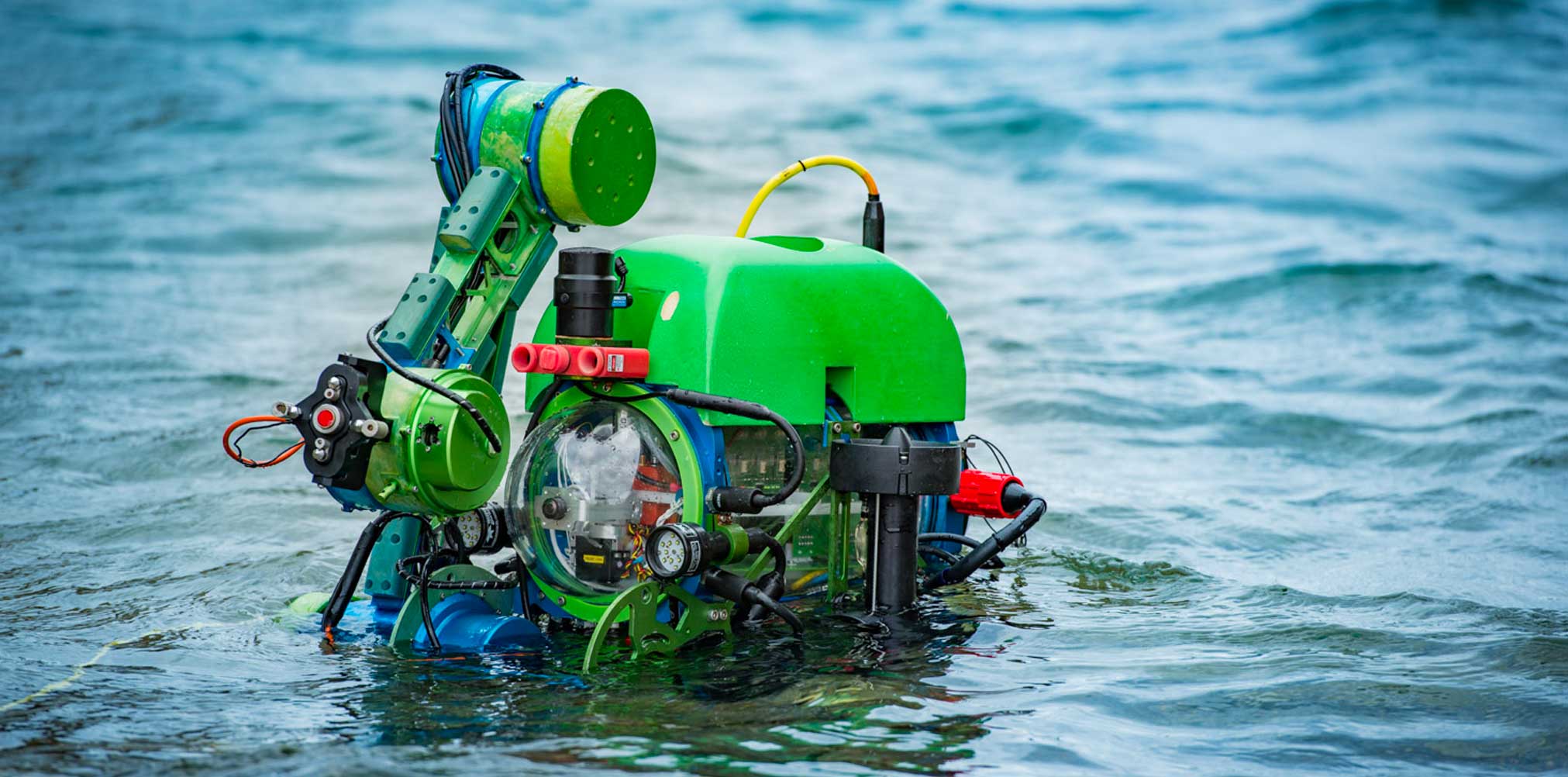
Our Shallow Water Inspection and Monitoring Robot (SWIM-R).
Virtual/Augmented Reality
Virtual or augmented reality hands-free helmets provide our workforce with real-time data and 3D video insights. VR and AR can also be used to enhance employee safety and training programs. Our Digital Helmets utilize AR features to connect field workers to other employees, enabling effective and real-time interaction and collaboration.
3D printing
Which is also known as additive manufacturing, is a way of creating a three-dimensional object, layer by layer, using a computer-created design. 3D printing can be used to simplify the production of complex components and prototypes, while also enabling replacements to be manufactured in remote locations. Our iktva program helped support the establishment of the Kingdom’s first additive manufacturing center — a cutting-edge facility that 3D prints a wide range of products for industrial uses.
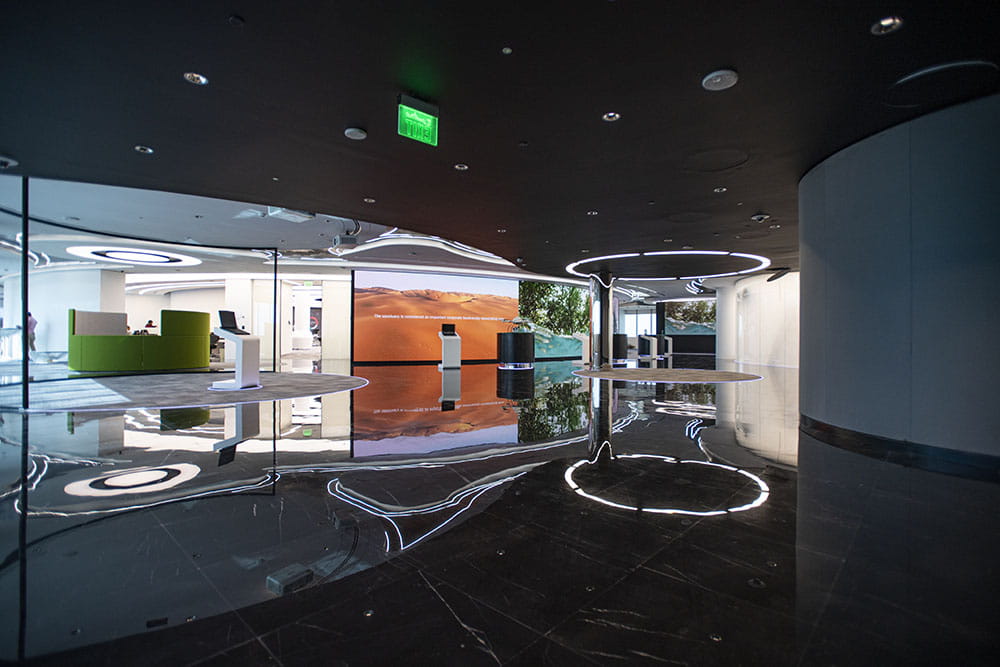
AI and Big Data
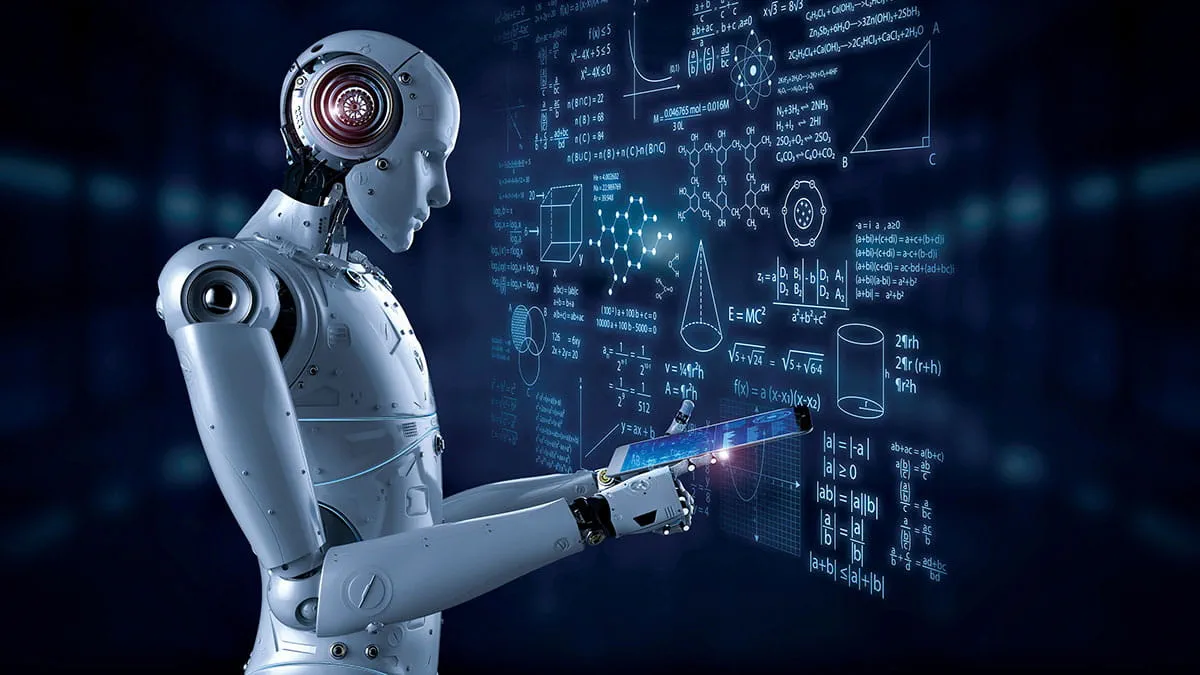
Digital Transformation
We are dedicated to digital transformation in the oil and gas industry.
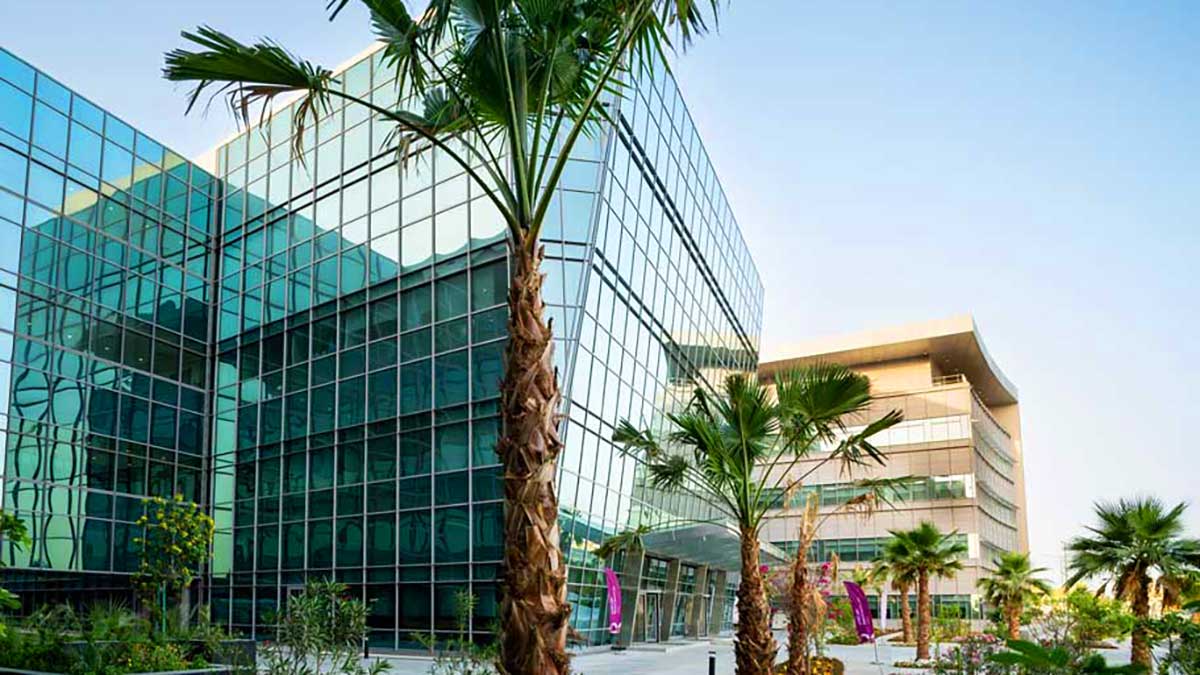
Our digital innovation centers
Aramco’s Innovation Centers play an important role in the Company’s Digital Transformation.